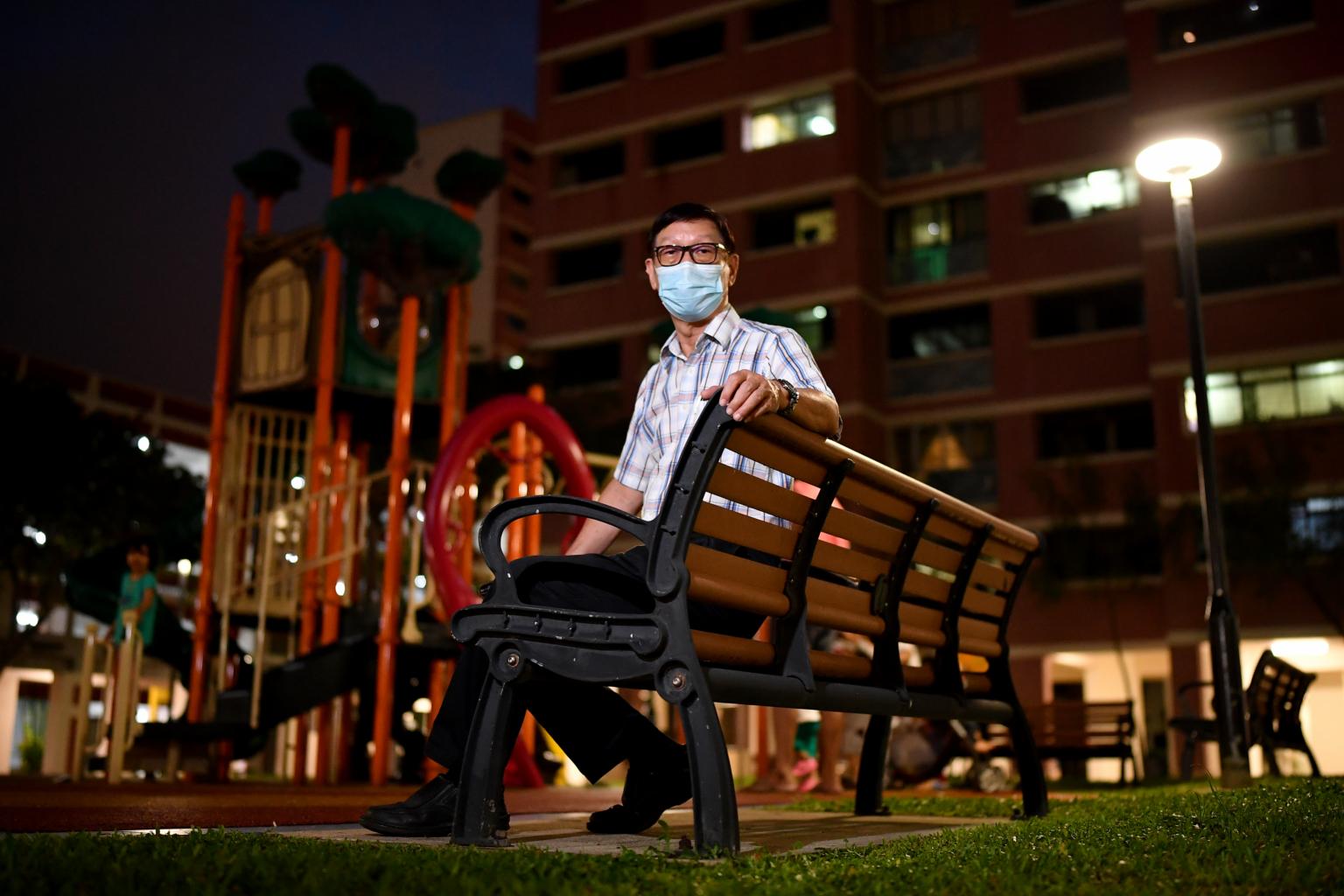Yellow Ribbon Community Project volunteers awarded for supporting offenders' families
Sign up now: Get ST's newsletters delivered to your inbox

Mr Francis Ng is one of 30 recipients of the 10-Year Service Award for his volunteer work with the YRCP.
ST PHOTO: LIM YAOHUI
SINGAPORE - After her husband was convicted of drug-related offences in 2016, Sharon (not her real name) felt lost.
The mother of two knew there were debts to pay. Her children's tertiary school fees were soon due, and on top of that, they were angry with their father. They even told their mother to leave him.
But things started turning around for the 50-year-old administrator when she met long-term Yellow Ribbon Community Project (YRCP) volunteer Francis Ng.
When The Straits Times visited the family's flat in eastern Singapore on Thursday (Nov 26), Sharon said: "When I faced problems and had questions, he (Mr Ng) was the only one I had at the moment to answer them.
"The first time he came to visit me, you could see his sincerity. He was trying his best. He has a lot of heart and kept calling to check on me and (make sure) I'm fine," added Sharon, whose husband Richard (not his real name) has since finished serving his sentence.
Mr Ng, 63, was at her beck and call during her husband's incarceration, helping Sharon apply for various social service schemes, getting the family supermarket vouchers, and even writing to the children's schools to secure bursaries for them when their fees, which would have totalled about $13,000 a year, were due.
On Saturday, Mr Ng, who works in the healthcare industry helping the elderly, was one of 30 recipients of the 10-Year Service Award for his volunteer work with the YRCP.
Speaking at the YRCP Awards and Appreciation ceremony, Minister of State for Home Affairs and National Development Muhammad Faishal Ibrahim thanked the volunteers for their hard work, even amid the Covid-19 pandemic.
"Your effort in keeping up the engagement, providing immediate support to the families of the offenders, and helping them access government and community assistance, is crucial to stabilise the family situation quickly and minimise further disruptions to their daily lives," said Dr Faishal.
The YRCP started in September 2010. It links trained grassroots volunteers with families of newly admitted offenders to offer them support and assistance by putting them in touch with social support networks for financial help, as well as providing them with family support and other welfare needs.
Volunteers will approach families only after consent has been given by the offenders, and they help the families in areas including finance, education, housing and employment.
As at October this year, more than 1,200 volunteers have been trained and reached out to more than 15,000 families islandwide.
Mr Ng was one of the project's first volunteers. On average, he and his team reach out to between two and seven families a week.
When asked what drives him to continue helping families, Mr Ng said: "(It) is something which is very difficult to explain and there's no word that can actually express the satisfaction until you've experienced it yourself.
"Once you help a family, then you can see that after the discharge (of the offender), the family will do very well... so you know you did something which actually helps," he added.
As for Richard, he said going home to his wife and children was "like winning the lottery". When asked how he felt that his family were taken care of while he was serving his sentence, he smiled and said he was "grateful".


